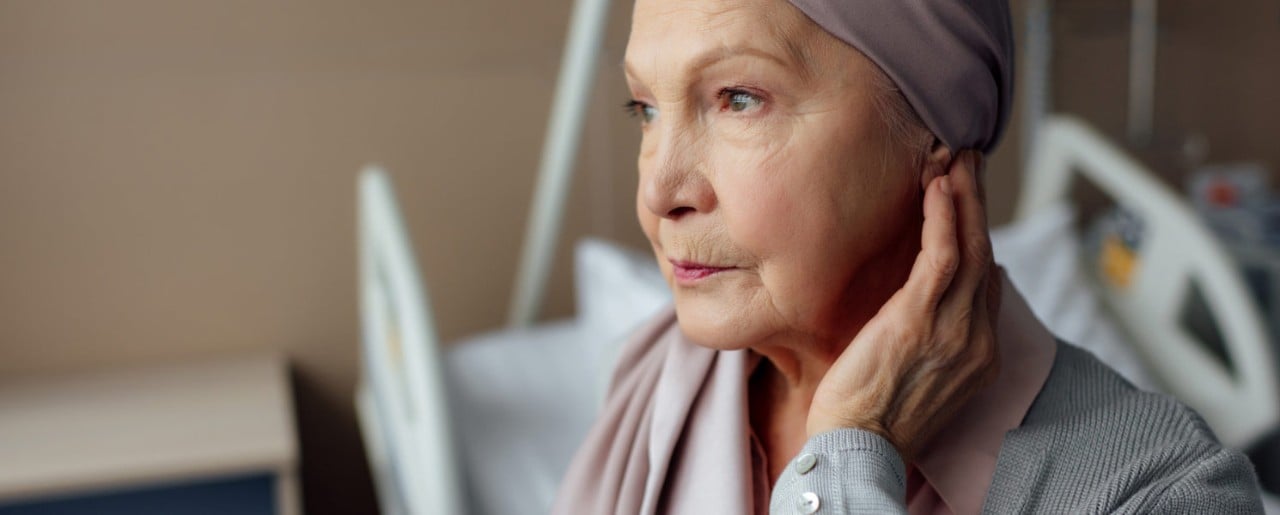Health
How to manage common cancer treatment side effects
By Dennis Galvon, MD Jul 08, 2024 • 14 min
Cancer medications can treat cancer by shrinking tumors and slowing their growth, targeting fast-growing cancer cells, or blocking cancer cells from getting the hormones that feed cell growth. All of these benefits may contribute to remission and extending your life, and as a result, they can be an important part of a cancer treatment plan. However, for all their benefits, medications and treatments may also cause side effects. Fortunately, you can take steps to address many of them.
1. Fatigue: It may not be possible to entirely eliminate fatigue related to cancer medications, but you may be able to reduce the severity through strategies such as:
- Maintaining a consistent sleep schedule
- Taking short naps as needed during the day
- Cutting back on unnecessary activities and doing only things that matter most
- Continuing with exercise you can tolerate, such as walking, even if it's only for a few minutes at a time
- Consulting a registered dietitian to learn about foods and drinks that can provide energy support
- Engaging in mind-body activities, such as yoga and tai chi
- Working with your healthcare provider to treat any underlying medical causes that may be treated, such as anemia or pain medication side effects
- Taking supplements as recommended by your healthcare provider
2. Peripheral neuropathy: To prevent or manage issues that may arise from nerve pain, numbness and tingling due to cancer treatment, try the following:
- Use nonslip mats in the bathroom
- Install grab bars in the bathroom
- Wear shoes or slippers with nonslip soles
- Move slowly when standing up after sitting or lying down
- Use potholders or oven mitts when cooking
- Ask someone to check the temperature of the water in your bath or shower to avoid scalds
- Keep your hands and feet covered in cold conditions
- Check your extremities, including your hands and feet, regularly for cuts and scratches or other injuries
- Talk to your healthcare provider about pain medications, massage therapy, physical therapy and other interventions
- Talk to your primary provider or oncologist about blood tests for B12, thyroid and diabetes to ensure they are not causing or worsening the peripheral neuropathy
3. Mood, memory and thinking changes: For changes in memory and mood that may occur while taking cancer medications, consider these coping strategies:
- Seek help from a mental health professional for persistent feelings of depression or anxiety
- Exercise regularly
- Get plenty of sleep
- Try relaxation techniques, such as meditation and deep breathing
- Consider yoga, tai chi, qi gong and other movement therapies to support mental health
- Use a daily planner or smartphone app to track appointments, to-do lists and important information
- Follow a set daily schedule as much as possible
- Keep items that you frequently use in the same place to avoid misplacing them
- Strengthen your mind by completing puzzles, learning a new hobby or playing a musical instrument
- Ask for help from friends and family members as needed
4. Changes in libido and sexual function: To cope with changes in libido and sexual function that may occur during treatment, talk to your healthcare provider about:
- Medications and interventions for erectile dysfunction, vaginal dryness and other concerns
- Exercises that can improve blood flow to the genital area and strengthen pelvic floor muscles
- Support groups or mental health professionals that specialize in sexual issues
Consider using condoms and other contraceptives that can protect your partner from chemo exposure. Be sure to talk to your spouse or partner about the changes you’re experiencing.
5. Fertility problems: In some cases, cancer medications may cause temporary or permanent fertility issues. People being treated for cancer may consider options for managing these effects through:
- Egg freezing: Eggs are removed surgically and then frozen and later thawed to fertilize and insert into your or your surrogate’s uterus
- Embryo freezing: When eggs are removed from your body and then fertilized with your partner’s or a donor’s sperm in a lab, the resulting embryos are then frozen to be inserted into your or your surrogate’s uterus in the future
- Ovarian shielding: Use of a protective shield during radiation to limit exposure
- Ovarian tissue freezing: The surgical removal of all or part of an ovary to preserve eggs. When you’re ready to become pregnant, your healthcare provider restores the tissue to your body.
- Ovarian transposition: Surgical relocation of the ovaries, which is performed prior to radiation therapy
- Radical trachelectomy: A surgical procedure performed as an alternative to a hysterectomy in those with early-stage cervical cancer, which involves removing the cervix, nearby lymph nodes, and the upper part of the vagina, and attaching the uterus to the remaining part of the vagina
Men can reduce the risk of future fertility problems through:
- Sperm banking: The collection and freezing of semen samples for future use
- Testicular shielding: Placing a protective cover over the testicles to reduce exposure during radiation therapy
- Testicular sperm extraction (TESE): A surgical procedure to extract sperm that is used for those who are unable to produce a sufficient or high-quality semen sample for sperm banking
- Testicular tissue freezing: An experimental procedure for those who haven’t gone through puberty, which involves removing tissue from the testicles and freezing it for future use.
6. Constipation: To promote bowel regularity during cancer treatment:
- Eat plenty of high-fiber foods, such as whole grains, fruits and vegetables
- Drink plenty of fluids
- Perform light exercise on a daily basis
- Discuss laxatives and other constipation treatments with your healthcare provider. Stool softener pills and fiber supplements may be a helpful option.
7. Diarrhea: If you experience diarrhea during cancer treatment, try:
- Drinking plenty of fluids daily to reduce the risk of dehydration
- Eating six to eight small meals instead of three large ones
- Avoiding spicy and fatty foods that can worsen diarrhea
- Practicing good hygiene to keep your anal area dry and clean. Moist wipes may be used to avoid irritating your skin with toilet paper.
- Talking to your healthcare provider before taking any new medications or supplements
8. Difficulty swallowing: To ensure safety and make sure that your nutritional needs are met despite difficulty swallowing due to cancer medications, you can try the following:
- Eat bland foods that are high in calories and protein, like cream soups and milkshakes
- Take small bites and chew your food thoroughly
- Avoid foods that are salty, spicy, acidic or crunchy
- Use a straw for soft foods
- Puree and mash foods
- Dunk food in gravy, sauce or milk to make it easier to swallow
- Add gelatin, baby rice cereal, tapioca and other thickeners to foods for easier swallowing
9. Loss of appetite: You can meet your nutritional needs and stimulate your appetite during cancer treatment by:
- Drinking plenty of fluids to lower the likelihood of dehydration
- Eating several smaller meals throughout the day
- Exploring nutrient-dense food choices with a registered dietician
- Exercising regularly
- Discussing nutritional supplements with your healthcare provider
10. Mouth sores and dry mouth: For mouth issues related to cancer treatment, you can consider:
- Seeing your dentist before starting treatment and ask about follow-up appointments during treatment
- Rinsing your mouth daily with a solution of warm water, baking soda and salt
- Opting for soft, easy-to-swallow foods
- Avoiding salty, spicy and crunchy foods
- Drinking plenty of cold fluids daily
- Sucking on ice chips or sugar-free candy
- Discussing pain relief lozenges and sprays with your healthcare provider
11. Nausea and vomiting: If nausea and vomiting occur during treatment, the following strategies may help ease symptoms:
- Drink plenty of fluids to minimize your risk of dehydration
- Avoid sweet, spicy, greasy and salty foods if they worsen nausea symptoms
- Keep a food and nausea journal to identify things that trigger symptoms
- Choose cold foods and foods that don’t have strong smells
- Wait at least one hour after treatment before eating if you frequently get sick after chemotherapy or taking medication
- Discuss anti-nausea medications with your healthcare provider
12. Changes in taste: For changes in taste that make it difficult for you to enjoy meals, you can try:
- Marinating foods and adding sauces to enhance flavor
- Switching to other high-protein foods if red meat has an unpleasant taste
- Switching to frozen foods rather than canned
- Using plastic utensils instead of metal if you experience a metallic taste
13. Skin and nail changes: To care for your skin and nails during cancer treatment, the following are some tips:
- Ask your healthcare provider about which skin care products to use
- Follow advice about cleaning and caring for treatment sites
- Apply a recommended moisturizer frequently to hydrate your skin
- Take shorter showers and baths and use lukewarm rather than hot water
- Use a cool washcloth to soothe itchy skin
- Protect your skin with sunscreen and clothing when you’re outdoors
- Keep your nails cut short during treatment
- Wear gloves when performing household chores
- Opt for comfortable shoes that don’t rub against or constrict your toes
- Discuss treatment options for rashes with your healthcare provider
14. Hair loss: Loss of scalp and body hair during cancer treatment may not be preventable, but you can take steps to manage the issue by:
- Using a wide-toothed comb and soft-bristled brush when styling
- Consider the use of Cooling Caps to try to prevent or reduce hair loss during chemotherapy treatment
- Avoiding chemical treatments and thermal styling tools
- Switching to a gentle shampoo and conditioner recommended by your healthcare provider
- Applying sunscreen to your scalp or wearing a hat when you’re outside
- Sharing your feelings with others
- Applying sunscreen to your scalp or wearing a hat when you’re outside
Remember that you have choices for managing hair loss. You may decide to shave your head or cut your hair short to make hair loss less dramatic. Hairpieces and wigs are also available to help you look and feel your best.
Getting help for cancer treatment side effects
Which coping and management strategies for cancer treatment side effects will be most helpful for you depends on a number of factors, from your age and general health to the severity of your symptoms. Use the information outlined above as a starting point for discussing with your healthcare provider how best to manage side effects. They can give you personalized advice and recommend other ways of lessening side effects during treatment.
Our Feel More Like You™ service features pharmacists and beauty and wellness consultants who are specially trained to help people better manage possible internal and visible side effects from cancer treatment. Find a participating location near you.
Published July, 2024.
Sources:
- https://www.cancer.org/cancer/managing-cancer/side-effects/changes-in-mood-or-thinking/chemo-brain.html
- https://acsjournals.onlinelibrary.wiley.com/doi/10.3322/caac.21820
- https://my.clevelandclinic.org/health/diseases/12194-cancer
- https://www.cancer.gov/about-cancer/treatment/side-effects
- https://www.cancer.gov/about-cancer/treatment/side-effects/fatigue
- https://www.cancer.gov/about-cancer/treatment/side-effects/nerve-problems
- https://www.cancercenter.com/integrative-care/depression
- https://www.cancer.gov/about-cancer/treatment/side-effects/memory
- https://www.cancer.gov/about-cancer/treatment/side-effects/sexuality-women
- https://www.cancer.gov/about-cancer/treatment/side-effects/sexuality-men
- https://www.cancer.gov/about-cancer/treatment/side-effects/fertility-men
- https://www.cancer.gov/about-cancer/treatment/side-effects/fertility-women
- https://www.cancer.gov/about-cancer/treatment/side-effects/constipation
- https://www.cancer.gov/about-cancer/treatment/side-effects/diarrhea
- https://www.cancer.org/cancer/managing-cancer/side-effects/eating-problems/swallowing-problems.html
- https://www.cancer.gov/about-cancer/treatment/side-effects/appetite-loss
- https://www.cancer.gov/about-cancer/treatment/side-effects/nausea-vomiting
- https://www.cancer.gov/about-cancer/treatment/side-effects/mouth-throat
- https://www.cancer.gov/about-cancer/treatment/side-effects/skin-nail-changes
- https://www.mdanderson.org/cancerwise/hair-loss-after-chemotherapy--10-things-to-know.h00-159540534.html
- https://www.cancer.org/cancer/managing-cancer/side-effects/hair-skin-nails/hair-loss/cold-caps.html
- https://www.cancer.gov/about-cancer/treatment/side-effects/hair-loss
- https://www.cancer.gov/about-cancer/treatment/types
- https://www.mayoclinic.org/diseases-conditions/peripheral-neuropathy/symptoms-causes/syc-20352061
- https://www.mdanderson.org/patients-family/diagnosis-treatment/emotional-physical-effects/constipation.html
- https://www.cancer.org/cancer/managing-cancer/side-effects/stool-or-urine-changes/diarrhea.html
- https://www.mdanderson.org/patients-family/diagnosis-treatment/emotional-physical-effects/oral-care.html
- https://www.cancer.gov/about-cancer/treatment/side-effects/appetite-loss/nutrition-pdq


